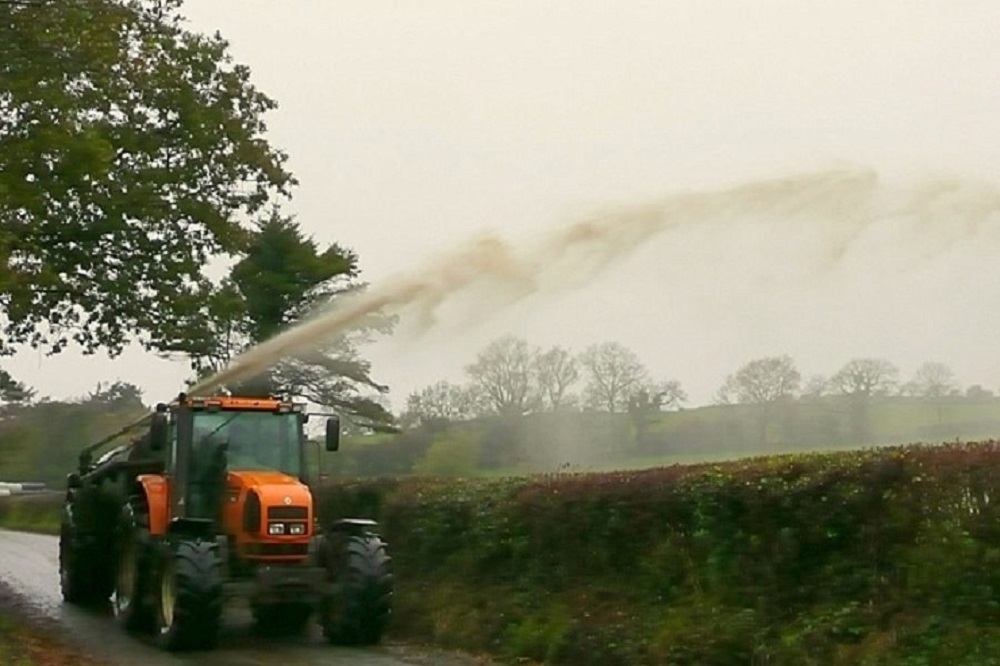Delays prompt fresh concerns from farmers over water regulations

Rising inflation and materials shortages will make it even more difficult for farmers to comply with Welsh Government’s water regulations NFU Cymru has warned
Under new Nitrate Vulnerable Zone (NVZ) rules, from 2024 slurry produced from pigs and poultry will require storage for six months before it can be used and slurry from other livestock will require five months’ storage capacity.
NFUCymru deputy president Abi Reader, has warned that there is currently a two-year waiting list for shed builders and that with a shortage of building materials and the rising cost of fuel, achieving the required infrastructure ahead of the onset of the regulations will be very challenging.
Speaking to the Farmer’s Guardian, Ms Reader said the Welsh Government had given the union no assurances that there would be mitigations in place for farmers who could not comply through no fault of their own.
She said: “Lots of people are struggling to get raw materials, even fuel is a struggle at the moment,” she said.
“You do wonder how on earth we are going to meet those infrastructure demands before the regulations come into full effect.”
She was speaking a week after NFU Cymru lost a legal battle with Welsh Government in which the High Court dismissed a legal challenge against the water quality regulations introduced last year.
NFU Cymru challenged the rules, which effectively make the whole of Wales a Nitrate Vulnerable Zone (NVZ) and introduced closed periods for slurry spreading, describing them as “unworkable” and said they pose a significant threat to the economic viability of Welsh farming.
Judge, Sir Wynn Williams said the Welsh Government had not acted unlawfully in making the water quality regulation.
Financial impact
Plaid Cymru and the Welsh Conservatives have also both voiced opposition to the Nitrate Vulnerable Zones or NVZ Regulations.
Over 10,000 farmers also sent emails to Senedd members highlighting the financial impact of implementing the new regulations, which include the upgrading of slurry storage facilities to enable farms to have at least five months’ worth of slurry storage.
NFU Cymru estimates the regulations, which also impose three-month ban on slurry spreading every autumn to curb run-off from fields during wet months, created up-front costs of around £360m and ongoing yearly costs of £14m.
The Welsh government says the new rules are necessary to tackle river pollution and improve water quality in rivers and lakes.
Plaid Cymru has promised to continue to push for a more ‘targeted solution’, and a Senedd inquiry into the rules continues.
NFU Cymru vowed to keep fighting despite losing the judicial review and are continuing to call for increased financial support to be given to farmers to help them comply with the new regulations.
Ms Reader added: “We very much look now to Welsh Government to give us some indication of what they can do to enable Welsh farming to continue to prosper in this new world post-Brexit,” said Ms Reader.
Any farmers who need further information on how to comply with the rules can contact the ADAS Control of Agricultural Pollution Regulations Helpline on 01974 847 000 or Farming Connect on 08456 000 813.
Support our Nation today
For the price of a cup of coffee a month you can help us create an independent, not-for-profit, national news service for the people of Wales, by the people of Wales.






No one can tell me what the liquid/solid balance is in their slurry discharge
The greater the liquid content the greater the
smell as slurry is atomized into the air
So is the risk and impact of run off
Watch the seagulls migrate from the coast on a daily basis to follow the slurry spreaders to eat the worms forced to the soil surface.
We must return to traditional fym ie almost solid manure spreading there is no other solution to this age old problem
It’s now a race to the bottom. The rise in fuel & energy is a factor. But it will get far worse when Wales Brexit dividend hits the fan. It’s not only the very same farmers who voted for Brexit that will suffer tons of Australian & New Zealand beef & lamb flooding the market, but it’s our stunningly beautiful countryside that will be tainted by chemicals leeching into our lakes and rivers too. So sad. Tragic in fact. The arrogant Tories are actively destroying Welsh Agriculture as they did our mining industry. Diversify said that clueless Conservative Liz Truss,… Read more »
“For Wales to compete with their Antipodean super-farms will have to lower meat, poultry & environmental standards to make ands meet.” This is not correct except in a narrow band of conditions. Meat produced in Wales will cost more, that much is true, but it will also be of better quality. So it should be a differentiated product. Ah, you might say, we can only afford less, to which I say fair enough eat less but eat better. So when you buy a joint you use native raised meat, when you consume processed food it will likely contain cheaper meats… Read more »